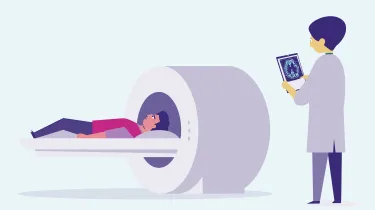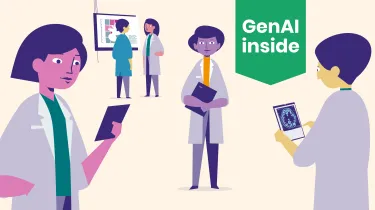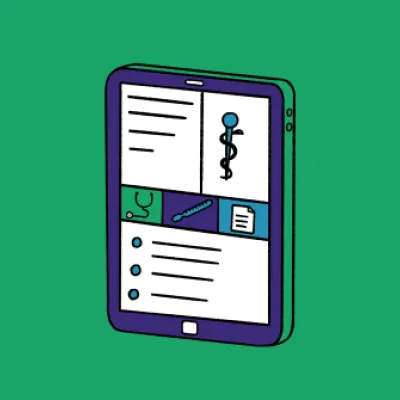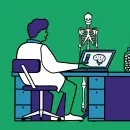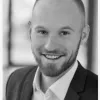AI in medicine
Artificial intelligence is playing an increasingly important role in medicine – from early detection to personalised treatment. Applications such as symptom checkers and health apps collect health data in a standardised way, support early diagnosis and improve the effectiveness of therapies.
Imaging techniques also benefit from AI, for example through more precise analysis of medical images and better support in diagnosis. On the AI Campus, you will learn which AI methods are used in medicine, for which diseases they are especially helpful, and why the quality of medical data is a key prerequisite.
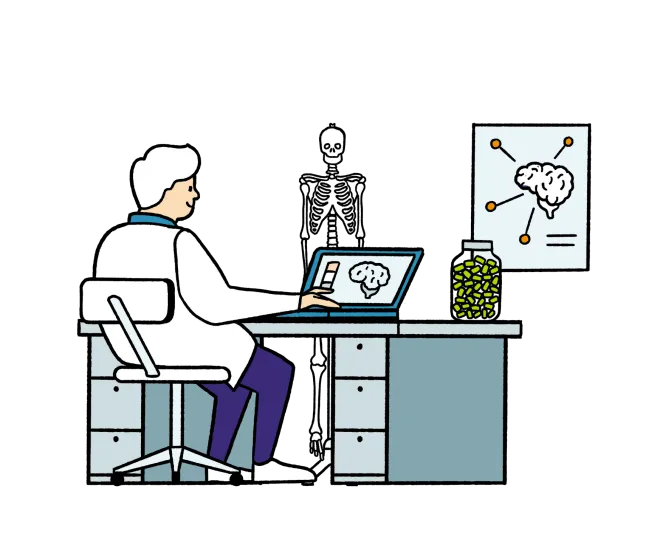
Dr. med. AI – Fundamentals for Doctors
AI med – Artificial Intelligence in Medicine
AI med – Ethics

My Master of Medical Education degree from 2006 to 2008 was the starting point for a series of innovations in teaching, which I have researched intensively with my team. The focus of my work is on the acquisition of clinical reasoning skills, digital teaching/learning formats, the impact of examinations on learning behaviour and processes, and teaching evaluation. As a clinician, I know the challenges that teachers face at a maximum care hospital. That is why we develop our teaching concepts in close consultation with the teaching staff.
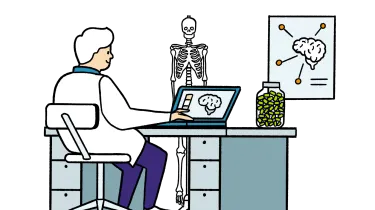
AI in medicine

Andrea Volkamer studied bioinformatics at Saarland University, followed by a one-year research stay at Purdue University (USA). After her doctorate at the University of Hamburg with a focus on computer-aided drug design, she worked at the BioMedX Innovation Center Heidelberg as a PostDoc on methods for developing selective kinase inhibitors. From 2016-2022, she led a research group for structural bioinformatics and in silico toxicology at the Institute of Physiology at Charité Universitätsmedizin Berlin as a junior professor. Since Aug. 2022, Andrea Volkamer has held a professorship at Saarland University in the field of "Data Driven Drug Design".

At the AI Campus, Mike Bernd coordinates the area of learning programs. Previously, he worked as a Quality Assurance Manager at Kiron Open Higher Education and as an Instructional Designer at HAW Hamburg. During his time as Deputy Project Manager at the University of Shanghai for Science & Technology, he developed hybrid course formats in the context of digitalised teaching. Mike Bernd studied, among other subjects, social and cultural anthropology at Freie Universität Berlin and sinology at Humboldt-Universität zu Berlin.
